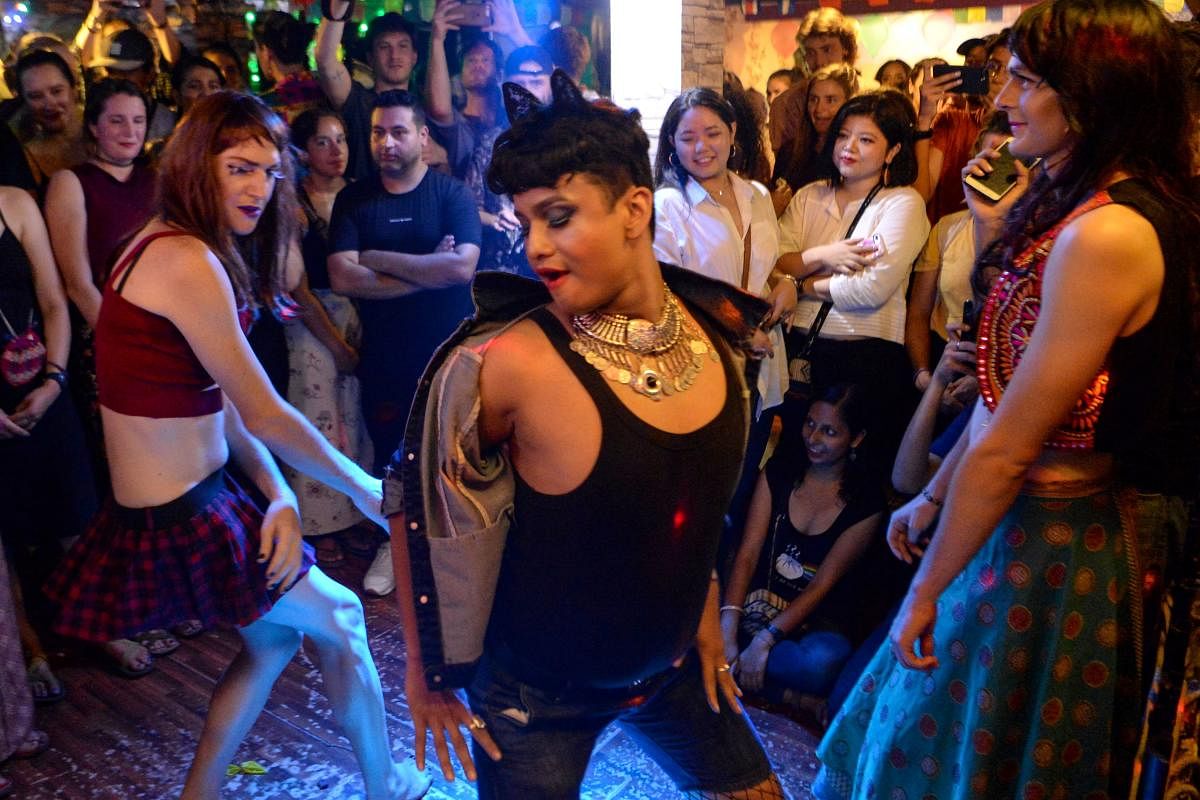
Batting colourful lashes and swinging their silky wigs, drag artists danced to a cheering crowd at a Nepali restaurant in the country's first such show.
The floor of the Pink Tiffany, Nepal's first LGBTI-friendly restaurant, was packed on Tuesday evening to applaud the debut performances, with many in the audience also wearing glittery make-up and vibrant outfits.
Meghna Lama, the restaurant's owner and a transgender woman, said she was excited to host the groundbreaking event.
"We wanted to organise programs to show that LGBTIs also exist here, so for the first time we are trying to do the drag show," Lama said.
The show was headlined by American artists, but Lama hopes it will open doors for Nepali drag enthusiasts to take to the stage.
"This is exciting, I feel very free here. It is so good to see others enjoy (transforming) as I do," said a 20-year-old Nepali participant who goes by the name of Peachy Pie.
Nepal has some of South Asia's most progressive laws on homosexuality and transgender rights.
Landmark reforms in 2007 prohibited discrimination on the basis of sexual orientation and recognised gay Nepalis, at a time when homosexuality was still illegal in neighbouring India.
Transgender Nepalis were also granted the right to tick "other" when voting, applying for a passport, or other official documents.
But gay and transgender Nepalis and rights activists say action has not matched the rhetoric. More than a decade on, the community still faces discrimination in the conservative society.
"In Nepal, we didn't have specific spaces for LGBTIs even now. So when you are doing certain things that are aimed to be queer you are also reclaiming space, not just as space but also a space in society," said Rukshana Kapali, a transgender woman who came to watch the show.
More than 900,000 of Nepal's roughly 26 million population identify as a sexual minority, according to LGBTI rights group Blue Diamond Society